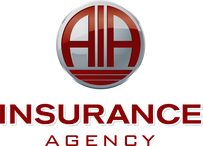During extremely cold weather, staying warm and safe can be a challenge. Learn how to prepare for winter storms, prevent cold temperature-related health problems, and protect yourself during all stages of a winter storm by reviewing the CDC winter weather preparedness guidelines by following the link below:
- Prepare your emergency supply kits (home and auto).
- Monitor your thermostats in all interior areas,
- Bring your pets indoors.
- Turn off outside features, faucets, spigots or lines, clear lines of water & insulate wherever you can.
- If you have a pool, contact your pool service provider for winterization assistance.
- Drip your faucets. Slow moving of water though a line will prevent ice accumulation.
- Insulate any exposed pipes located in attics or crawl spaces to prevent frozen pipe ruptures.
- If you will use your chimney, be sure the chimney is clean and clear and that the flue is open.
- Verify smoke and carbon monoxide detectors are functioning.
- Make sure your vehicle is full of gas.
- Keep gutters free of debris, ice, and snow which can pull down your gutters and cause roof damage.
- Trim tree branches: The weight of snow and ice on tree branched during a storm can cause damage your home and loss of power. Remove any dead limbs or branches that could cause serious damage if they were to fall.
- If you use a space heater, be sure to use extreme caution and do not leave them unattended.
- If your pipes freeze, locate and close the main water shutoff valve as soon as possible and before temperatures rise above freezing.
- Inspect pipes for damage, including those in attics and crawl spaces, where it is safe to do so.
- As temperatures increase above freezing, watch and listen for signs of water leaks.
- If a pipe is leaking, do not turn on the water. Open all faucets including those outside to drain remaining water from pipes and call a licensed plumber for repairs.
- If no leaks are detected, turn water back on slowly. Continue to check for leaks before turning water on completely.
- Never use torches or heat guns to facilitate thawing as these can create fire hazards.

|
Pipe Freeze - Reducing the Likelihood
Cold weather brings on the risk of pipes freezing, which could lead to significant property damage and costly repairs among other business interruptions. There are several things building owners and property managers can do to reduce the likelihood of pipe freeze in their buildings. This bulletin provides best practices to help reduce the risk of domestic and fire protection pipe freeze.
|

|
Holiday Driving Hazards
For many people, the holiday season means a lot of driving — to holiday parties, stores and family get-togethers. Before you get behind the wheel this winter, remember these holiday driving tips.
|

|
15 Home Winterization Tips
Review these tips to ensure your house is ready for winter weather from top to bottom.
|

|
Starting the New Year Safely
Setting a New Year's resolution is a great way to start the year off on a positive note. But a resolution does nothing for you if it's unrealistic. Next year, consider these simple safety resolutions instead.
|

|
6 Space Heater Safety Tips
Space heaters are convenient, but they can be deadly if they're used improperly. Here are some safety tips to keep in mind.
|

|
Winterize Against Workers’ Comp Claims
Cold weather leads to an increase in employee injuries. With a few steps, you can improve your workers’ chances of coming through the chill unscathed.
|

|
Is Your Vehicle Ready for Winter Weather?
Winter is on its way with cold temperatures, fog, snow and ice. Now is the time to prepare your vehicle for hazardous conditions and treacherous driving. Learn how.
|

|
Prevent Freezing Pipes in Extreme Cold
Just a friendly reminder to protect your pipes during frigid temperatures.
|
Claim Procedures
In addition, you should set aside damaged property for inspection and assemble an inventory of damaged items. If your building is flooded, please contact a mitigation contractor immediately to start the water extraction process.



